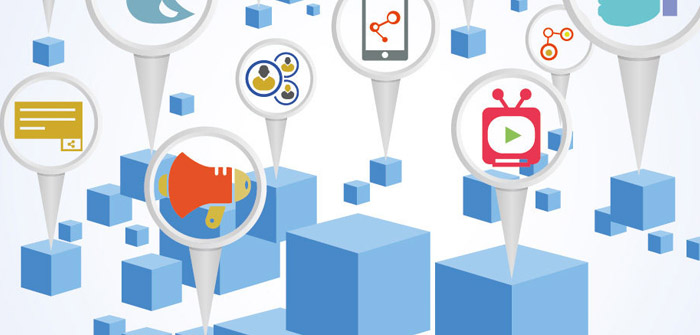Image source: information-age.com
Can you imagine at least one day of your life without a smartphone? Indeed, this sounds like a nightmare or a bit crazy experiment considering the highly-technological climate of nowadays. It is a rare case when you don’t need your phone for work, communication, and entertainment. That is why, mobile marketing takes the leading place today: customers use their portable devices no less than stationary computers (or even more). Your customers are always in the move and you should keep that in mind when creating a marketing plan.
In this post, we are going to talk about location intelligence, a technology that turns a challenging customers’ location issue into your potential advantage. To use the location-related information wisely, it is absolutely crucial to find the relationships between customers’ geographical points and their purchasing interests, behavioral patterns, and needs. Such data can make a great difference for your business. Let’s get into more details and see how location Intelligence software can improve your business decisions.
What is location intelligence and which aims does it have?
Location intelligence is a mixture of geographical information and business intelligence combined with the help of special cartographic tools. Such a combination allows marketers to interpret the location-relevant relationships of the geographical content that exists within particular data. As such, modern location intelligence connects data stores, business intelligence, and cartographic opportunities. Such software works to help marketers turn analytical data into efficient business strategies.
Indeed, geography means a lot for every company. The variables like sales territories, customers’ usual locations, brick-and-mortar stores locations (yours and competitors’), and delivery routes are crucial for brands to optimize their processes and boost business performance. Most of all, location awareness matters to improve the experience of existing customers and target new audiences.
Data received through business location intelligence provides marketers with in-depth insights of clients’ interests, demographic information, and location points. More precisely, this data includes customers’ everyday moving around the city, like their way to work and back home, places of interest, and particular content/services they prefer consuming. Such information allows businesses to beat competition by understanding the audience better and filling the gaps in their demands.
Some interesting use cases of location intelligence
The capacities of this technology can enrich any business. Whether you would like to study the habitual map of your target audience and find the best place/time to remind of yourself or help them make the best decision when they visit your store, location intelligence is key. Here are some use cases to consider:
- Location-based messaging
Targeted messages and promotions can be sent to customers’ devices considering their locations and as such – context they are currently in. When they appear at particular points, this might be the best moment to deliver a particular message, which can drive sales.
- Customer experience
Location intelligence can be used to guide customers around large locations (for example, if your business is connected with event management). This technology can help them find required spots, like food and drinks or restrooms.
- Retail sale
For retailers, location intelligence can be used to track and analyze buyers’ behavior in a store. In case they have brand apps, marketers can see which routes they choose to move around, and this way – optimize the products layout. What is more, data about previous choices can be used to send in-store offers right to customers’ phones. When offers are relevant and sent timely, customers’ loyalty grows naturally.
Key benefits
With location analytics, companies can turn customer data into strategies instantly. Here are the main benefits to expects:
- Finding the best locations for brick-and-mortar stores
- Identifying which territories cannot bring desired performance
- Analyzing your current performance
- Improving direct marketing and ads
- Sending targeted messages to your clients when they visit particular places to drive instant sales
To draw a bottom line, location intelligence is used to make sense of your previous performance and get a more advanced understanding of the results, including the way your decisions influenced overall realization of your frameworks. What is more, with the help of this technology, brands can provide clients with better experience, send relevant instant offers via mobile in-app messaging, and make customized offers considering their interests.
Routes and habits mean a lot and can tell something crucial about your customers. Using this data to improve your marketing strategies is the right decision that can help you gain serious advantage and fight off a competition.





